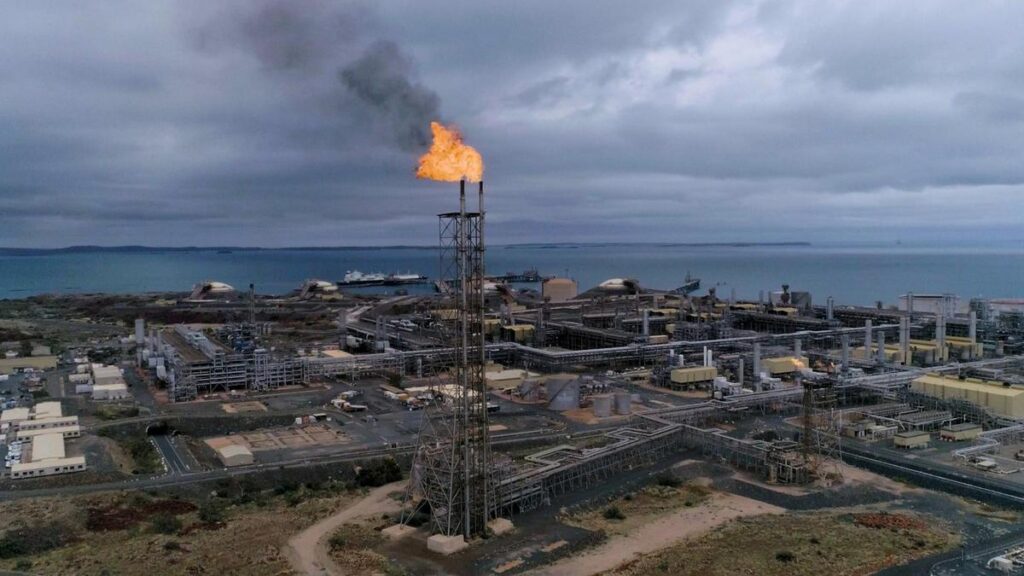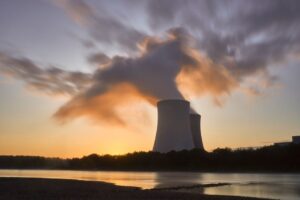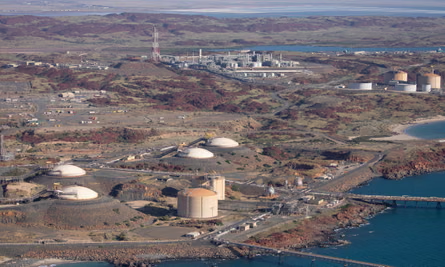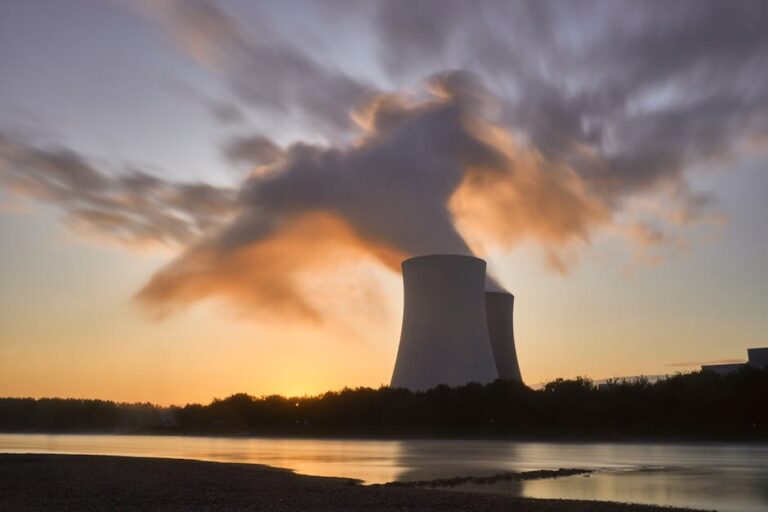Sydney, September 12, 2025. Australia Gas Project , In a choice that has sparked both economic hope and environmental outrage, the Australian government has approved an extension of Woodside Energy’s North West Shelf (NWS) gas export project until 2070. The announcement late Thursday positions Australia as a long-term player in the global LNG market. However, it also places the country at the center of a significant climate debate
The North West Shelf: Australia’s Energy Crown Jewel
The Australia Gas Project , located off the coast of Western Australia, is one of the country’s oldest and largest liquefied natural gas (LNG) facilities. It supplies LNG to major Asian markets like Japan, South Korea, China, and India, contributing billions of dollars to Australia’s economy each year.
The government sees the Australia Gas Project extension as a smart economic choice. It aims to ensure stable energy exports and jobs in the resource-rich Pilbara region. The extension could protect over 4,000 direct jobs and generate around $1.5 trillion in export revenue throughout its lifetime.
Australian Prime Minister Anthony Albanese praised the decision, referring to it as “a responsible energy security move.” He emphasized that it would help Australia Gas Project maintain its role as a “reliable partner in the global energy supply chain.”
Global Climate Groups Cry Foul

However, the announcement has sparked immediate backlash from climate activists and environmental groups. Organizations like Greenpeace, Extinction Rebellion, and the Climate Council of Australia have criticized the decision, calling it a “carbon bomb” that undermines international climate commitments.
Dr. Sarah Perkins-Kirkpatrick, a leading climate scientist, voiced her concerns directly:
“Approving a fossil fuel megaproject until 2070 is like pouring petrol on a burning planet.”
Critics argue that continuing large-scale fossil fuel projects contradicts the Paris Agreement’s goal of net-zero emissions by 2050. They warn that if fully utilized, the NWS extension could emit more than 4 billion tones of CO₂, potentially undoing progress made from renewable energy efforts worldwide.
The Political Balancing Act
The decision highlights the narrow path Australia Gas Project is walking between economic dependence on fossil fuels and its climate commitments. While the country has invested significantly in solar and wind energy, the fossil fuel sector still plays a major role in Australia’s GDP, exports, and jobs.
Political analysts suggest the move aims to appease influential mining and energy lobbies while sending a message to international investors that Australia remains a reliable energy supplier in a volatile world. However, this may come at a reputational cost on the global stage, especially among climate-conscious nations in Europe and the Pacific.
Pacific Island leaders, who have long criticized Australia’s fossil fuel policies, expressed disappointment. Tuvalu’s foreign minister tweeted:
“Australia can’t claim climate leadership while locking in new fossil fuel exports for 45 years.”
Economic Stakes: Jobs vs. Planet
Supporters of the project argue that ending LNG exports abruptly would severely harm Western Australia’s economy and impact energy-importing countries already facing supply shortages due to geopolitical tensions. They believe the project can coexist with plans for transitioning to renewable energy, viewing LNG as a “bridge fuel” while the world phases out coal and oil.
Woodside Energy CEO Meg O’Neill defended the extension, saying,
“This decision ensures secure energy for our partners, strong returns for Australia, and time for the world to build a renewable backbone.”
Still, experts warn that a long-term reliance on gas could delay investments in clean energy infrastructure and keep Australia stuck in outdated energy practices while other countries move more quickly toward decarbonization.
What This Means for the Climate Fight
The NWS decision has turned into a symbolic debate over the future of global climate policy. It raises difficult questions:
Woodside Energy CEO Meg O’Neill defended the extension, saying,
- Can wealthy nations keep exporting fossil fuels while asking poorer ones to cut emissions?
- Should energy security come before climate urgency in policymaking?
- And most importantly, who will pay the price of inaction — today’s leaders or tomorrow’s children?
As the climate crisis accelerates, with record heat waves, wildfires, and flooding worldwide, many experts see this as a warning that short-term economic interests are still overshadowing the need for long-term planetary survival.
Your Attractive Heading
Australia now faces a pivotal moment. By approving fossil fuel exports until 2070, it has chosen a route that offers economic stability but carries ecological risks. Whether this decision will lead to benefits or push the planet closer to climate disaster remains uncertain.
One thing is clear: the world is watching. The North West Shelf decision will shape Australia’s climate legacy for generations.









